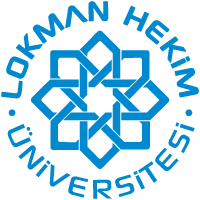| dc.description.abstract | Teucrium polium (T. polium) and Rumex crispus (R. crispus) are plant species that grow widely in Anatolia and are thought to have healing effects for many diseases. In this study plant extracts are suggested as alternative agents in repairing cellular damage by using sister chromatid exchange (SCE), micronucleus (MN), mitotic index (MI), replication index (RI) and nuclear abnormalities (NAs), against the genotoxicity of cyclophosphamide (CP) in the human lymphocyte cells. 8 experimental groups were formed in the study. The cell culture medium was supplemented with 0.16 μg/ml CP and the cells were treated with 50, 100 and 250 μM T. polium and R. crispus extracts in the presence and absence of CP. As a result, CP significantly decreased MI frequency while increasing SCE, MN and NAs frequencies in cells. 100 μM T. polium plus CP decreased SCEs when compared with CP alone. In addition, MN frequency was significantly decreased in 100 μM T. polium plus CP and 250 μM R. crispus plus CP combine groups. Our results suggest that these plant extracts are not genetically damaging and have improving effects at these doses. © 2019 Eco-Vector LLC. All rights reserved. | |














